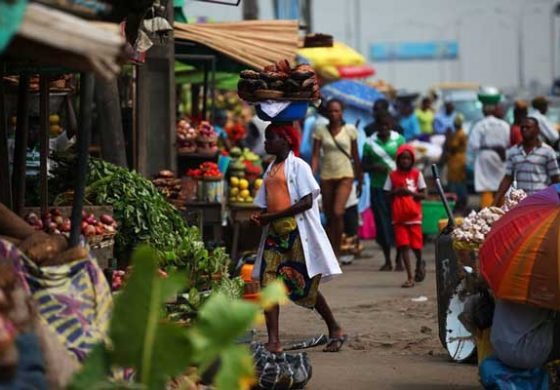The National Bureau of Statistics (NBS) has said Nigeria’s headline inflation rate declined to 24.48 per cent in January 2025,
The agency made this known in its Consumer Price Index (CPI) rebased results released in Abuja on Tuesday.
The CPI is a key macroeconomic indicator that reflects the movement of aggregate price levels in a country and is expected to be rebased every five years.
However, in Nigeria, the last CPI rebasing was conducted in 2009.
The latest inflation figure is an improvement from December 2024 when the inflation rate was 34.80 per cent.
Statistician-general of the Federation, Adeyemi Adeniran, made the announcement at a news briefing on the CPI Rebased Results.
Adeniran, who emphasised the importance of rebasing the CPI regularly due to changes in consumption patterns over time, which necessitated an update of the items in the CPI basket, said the rebasing was designed to ensure that Nigeria’s economic indicators accurately reflect the current structure of the economy, incorporating new and emerging sectors, updating consumption baskets, and refining data collection methods.
He said part of the process of rebasing the CPI included bringing the base year closer to the current period, from 2009 to 2024.
Giving a breakdown, he explained that the All-Items Index, which is used to measure headline inflation for January 2025, was 110.7, resulting in a headline inflation rate of 24.48 per cent on a year-on-year basis.
Adeniran further stated that the increase was mainly driven by Food and Non-alcoholic Beverages, Restaurants and Accommodation Services and Transport.
The Food Index for January 2025 was 110.03, which resulted in a food inflation rate of 26.08 per cent on a year-on-year basis.
Core Index, which is All-Items less farm produce and energy for January 2025, was 110.7, which gave rise to a core Inflation rate of 22.59 per cent on a year-on-year basis. The urban inflation rate for January 2025 was 26.09 per cent, while the rural inflation rate was 22.15 per cent.
The statistician-general pointed out that the CPI results do not indicate a reduction in the prices of goods and services in the market but rather measures the rate at which the prices were decreasing.
“The policies of the government targeted to reduce inflation rate are still there. The government is committed to ensuring food is available to the populace and the purchasing power of citizens is enhanced.
“So, the result is not saying prices of goods and services have come down in the market but the rate of change between January 2024 and January 2025 is what inflation rate is all about.”
He assured Nigerians that the results of the rebasing reflected the current inflationary pressures and recent household consumption patterns in the country.
Adeniran listed some CPI improvements and introduction to the methodology to include the transition to the latest version of the classification method.
According to him, the Classification of Individual Consumption According to Purpose (COICOP) 2018 version was used, departing from the 1999 version of COICOP.
He said the new version has 13 divisions, as against 12, bringing in household expenditure on Insurance and Financial Services, which now has a weight of 0.5 per cent relative to the total household expenditure.
Adeniran added that another improvement was the exclusion of own-production, imputed rents, and gifted items from the aggregates used to come up with the weights.
“This is because CPI is a monetary phenomenon, hence the computations should only include monetary expenditure.
“Also implemented under this rebasing is the movement of expenditures on meals away from home to the appropriate divisional class.
“These changes are quite significant and appropriately align expenditures to their respective classes, enabling price changes to be measured properly,” he stated.









